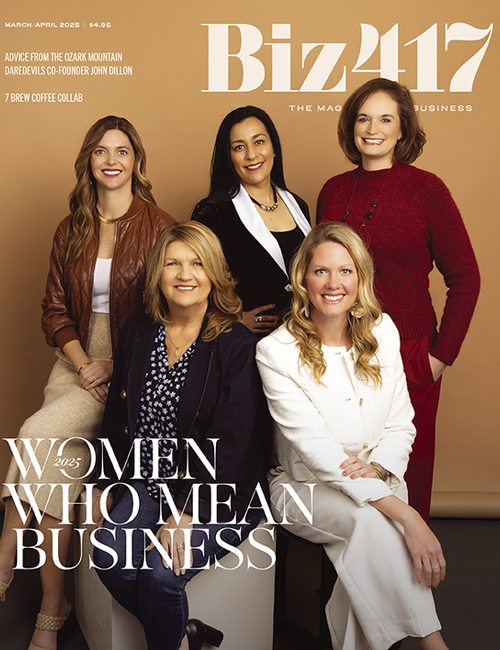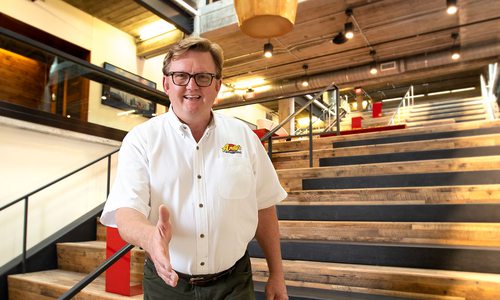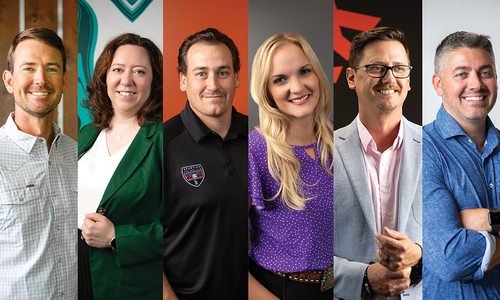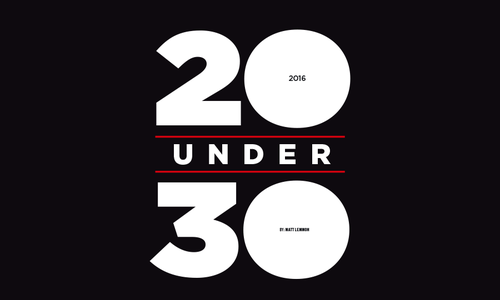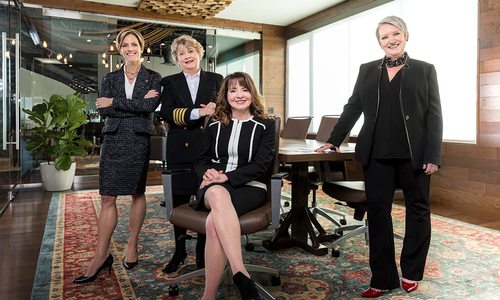
10 for the Next 10
10 For The Next 10
Watch out for these 10 change-makers who are carving out a new identity for 417-land.
By Vivian Wheeler | Photos by Brandon Alms
Jul 2017

The quickest way to understand the impact the 10 for the Next 10 have had on 417-land is to imagine what it would look like without them. Imagine Springfield without The Mystery Hour, which has been entertaining locals for more than 11 years and delighted millions with its Instagram Husband video. Or without Rosie, which is leading the charge in equal pay with its Rosie Makes Cents campaign. We’d be missing a County Commissioner and the chair of The Network, the Springfield Area Chamber of Commerce’s young professional networking group. Think about the fact that you might not be able to catch an Uber downtown to grab a cocktail at Scotch & Soda. It’s not a fun exercise.
This is by no means an exhaustive list of the contributions these 10 individuals have made, but it’s easy to see that we’d be missing a lot without them. Besides being driven, creative and hardworking, one trait that ties this diverse group of people together is their passion for our community—passion that translates to an enormous amount of time spent thinking about and putting into action ways to make 417-land better. These are people we want on Springfield’s team, and we can’t wait to see what they’ll do next.
Jump to A Section
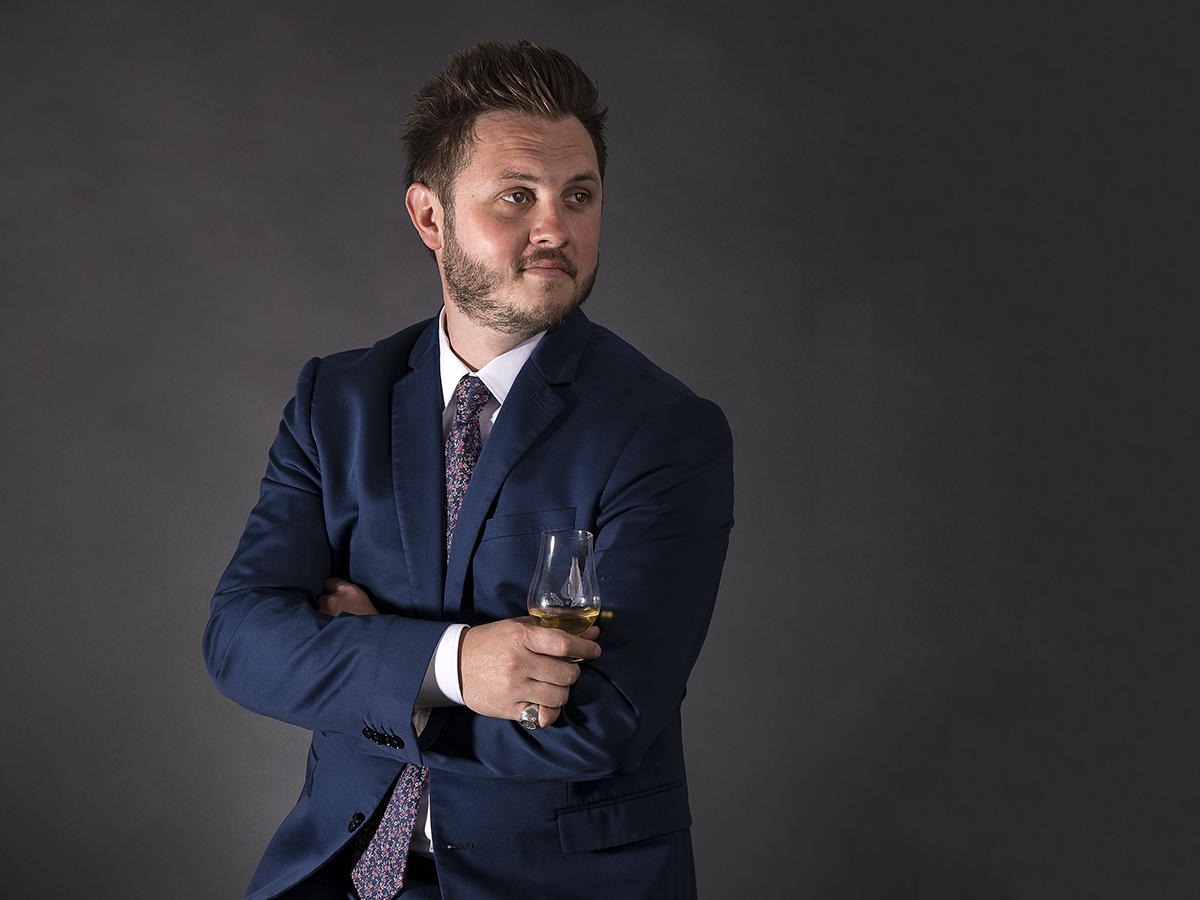
JOSHUA WIDNER
For bringing cocktail culture back to 417-land.
Joshua Widner’s cocktail empire almost didn’t happen. Widner was finishing his senior year at Full Sail University in Florida and was all set to take a job at an Icelandic recording studio when it unexpectedly closed. Widner landed back home in Springfield working as a barback at MudLounge. There he fell in love with the bar industry. Today Widner is the co-owner of four bars, including Cherry Picker Package x Fare, two locations of Scotch & Soda and Golden Girl Rum Club, several of which have received national attention. Now he’s showing no signs of slowing down.
What ah-ha moments have been crucial to your success?
“For the first couple years, maybe the first year, stress was really high. If you can, imagine selling your soul to start a bar at 23 or 24. First of all, I had no management skills. I was flying by the seat of my pants not really knowing what I was doing. I’ve learned to manage by positive reinforcement rather than negative. A lot of the jobs I had growing up, there was lots of negative reinforcement. The only time I talked to a manager was when I was doing something wrong. I’ve tried to change that every day, and I think I’ve done a pretty good job. They’re the lifeblood of my companies. I couldn’t do anything I did without them.”
What’s the thing that drives you?
“I think entrepreneurship is an addiction. In talking to other people, I say it’s a problem. I’m aware that it’s a problem. My wife’s aware that it’s a problem. I just love the whole process: writing things down, creating business plans, interacting with people, pitching to partners, bringing in partners, bringing in financers. It’s like the thrill of the hunt. It’s not as barbaric as that, but that’s what drives me. I can’t and will not stop. I love what I do. I wouldn’t do anything differently. It’s never been about the money. I don’t make a lot of money, and I don’t need a lot of money, and I don’t care about the money. It’s working with the people I work with and progressing the city that I come from and trying to make it a better place for everybody.”
How would you like to see 417-land change in the next decade?
“I don’t know if change is the right word. What I’ve kind of struggled with is creating some kind of identity. Springfield is much more than Bass Pro and cashew chicken, and we know that. What I would like to do is help mold and create this identity of being a beacon of food and beverage. Kansas City and St. Louis take a lot of the focus away from Springfield, and I think creating these projects that actually get national press and people are actually interested in talking to us about is exciting for Springfield to try and put us on the map.”
What’s your favorite thing about your job?
“I love being able to go around and see my employees and see all the individual places and talk to all the customers. I haven’t mixed a drink in a year and a half or two years now. My job has completely switched from being behind the bar every night to more of a clerical position. I’m in my underwear on my couch with my dog most of the day with QuickBooks. It’s not a glamorous job by any means, but when I do get out and I’m able to go to every bar, most of them open at 5 p.m. So driving around to make sure everyone is set up for the night is a lot of fun for me. I love my staff. My staff at each place is like my family, so it’s cool to interact with them and be with them as much as possible.”
What’s your proudest accomplishment?
“I’m very young. I’ll turn 30 this year. To have four restaurants before 30 is pretty cool. I’m proud of that. If I can keep it up, I’d like to have a lot more. I don’t know if my wife would let me have any more. But I would like to keep going. I feel like I have a different mentality than a lot of restaurateurs in this city as far as—how do I say this without being an asshole?—my companies aren’t flash-in-the-pan companies. I’m trying to create legacy companies for Springfield. I want Scotch & Soda to be around for the next 50 [years]. The companies were never written to be duplicated. I never thought I’d open another Scotch & Soda. That was something that kind of fell into our lap, and we decided it made business sense to pursue. But the models are always different.”
TERESA COYAN
For advocating for young professionals.
In Teresa Coyan’s role as the director of public affairs at CoxHealth she has to be highly attuned to the internal workings of the organization and any external pressures that affect it. On any given day she could be tracking health care legislation, lobbying in Jefferson City or Washington D.C. or helping manage the company’s community sponsorships and engagement. Six years ago, Coyan also started CoxHealth Young Professionals. The organization has been so successful that groups in places such as Florida and Texas have used it as a model when creating their own young professional groups.
What ah-ha moments have been crucial to your success?
“When I realized that not only did I want to stay in Springfield but [that] I wanted to move the dial with retaining talent in Springfield. I want people to be proud to be here. And then second, when I truly realized that in my career it was less about titles and more about working on projects and taking on roles that I felt passion and drive for. Loving what I do definitely has been a tipping point for me. It’s amazing the momentum and opportunities that are presented when you love what you do and are there for reasons far beyond a job title.”
What’s the thing that drives you?
“Making a difference is a huge factor in what drives me. Working in health care and specifically with health care policy has been a way for me to be part of big initiatives that have been impactful for [people] in southwest Missouri. Everyone has a story related to their health care experiences; through my legislative and administrative role, I’m driven by those stories and by the lives in our community to propel us forward.”
How would you like to see 417-land change in the next decade?
“I feel like a lot of communities have this time when they’re at their tipping point, where they’re on the verge of greatness. Everyone’s pushing toward the same direction, and I think that we’re moving in the right way—more inclusion just overall and continuing to embrace who the community is and just really highlighting the things we do well. I think as we continue to focus on those areas we’ll see growth. I think oftentimes we get really caught up in being the third largest city, and we kind of set the bar a little bit lower than we should. I think that we have a lot of potential, and we’re moving in that direction already.”
What do you think is the biggest challenge facing our region?
“We have great leaders in place, but honestly I think the biggest thing is transitioning over the next 10 years. A lot of the young professionals that we’re talking about now, they’re going to be in different roles in these organizations, and a lot of them are going to be the leaders of the community. So I think a challenge is making sure that we’re preparing people to step into those roles in a seamless manner and also for those who have been engaged and involved in the community for so many years, being okay with others stepping into those roles and giving people freedom to grow and to make Springfield the place that they see it going toward.”
What’s your go-to business book?
“'Now, Discover Your Strengths.' This book has really revolutionized the way that I work and has helped me to understand my strengths and also how to work better with others who have different strengths.”

HEATHER HARDINGER
For innovating Branson.
Native Alaskan Heather Hardinger came to Springfield to attend Evangel University where she majored in international multicultural studies. When she graduated, the recession was in full swing and jobs were scarce. She took a position in workforce development with AmeriCorps in St. Louis only to be subsequently transferred back to Springfield. These days she’s working to find creative solutions to Branson’s unique labor issues as the programs and communications director for Taney County Partnership. The job has recently taken her to Puerto Rico to help fill Branson’s worker shortage.
What ah-ha moments have been crucial to your success?
“I graduated from college with bright eyes ready to conquer the world, and there weren’t a lot of jobs out there. I think for me, keeping an open mind and being teachable has been crucial. I’m kind of a risk-averse person naturally, so taking some risks and saying, you know, you want to do this? Go out, try it, put your all into it and just see what happens. If it doesn’t work out, there’s always something else.”
What’s your favorite part of your job?
“I love learning about the different things that other communities are doing that are working really well and taking that information and seeing what works for the community in Branson. There’s really no other place like Branson, but I think that the workforce issues that we have there are definitely solvable. I see it like a cool puzzle. There’s just so many moving parts. It’s like, okay, something will work, you just have to figure out what that is and how to get the community on board.”
How would you like to see 417-land change in the next decade?
“More economic changes for everyone. Whether you have a college degree or maybe you haven’t gotten your GED [certificate] yet, there’s so many options here where we could plug people in and figure out where they’d be the best fit. I think we’re a little bit late to the game in that regard. A lot of areas have been working on these comprehensive workforce plans for a long time, but I think that if we can nail that down, that will be one of the things that makes us stand out.”
What’s the thing that drives you?
“[I’m] always looking for ways to make things better. I think we’re all working to make things good, and there are some people who are working to make them great. And that’s what I want to be a part of. I try to identify people who are already doing things really great things. I’ll be like, ‘Wow, that’s amazing. I’m going to talk to that person and see what they did and how they did it. Maybe we can do that here.’ Sometimes it doesn’t work out; it’s always changing and adapting and being flexible and being open to learn things.”
What do you think is the biggest challenge facing our region?
“I think our weakest point right now is the level of poverty that we have per capita, but we’re working on it. But in the meantime they’re still 260,000 people that don’t know where their next meal will come [from], and that’s something that shouldn’t be happening here. We have a lot of resources. I know that we have a lot of really good people who want to help. But it’s just figuring out how can we solve this. How can we help people get to a point of self-sustaining? How can we work with our employers, to work with our government to really make these changes? I think we’ve identified the challenges; it’s just a matter of taking action."
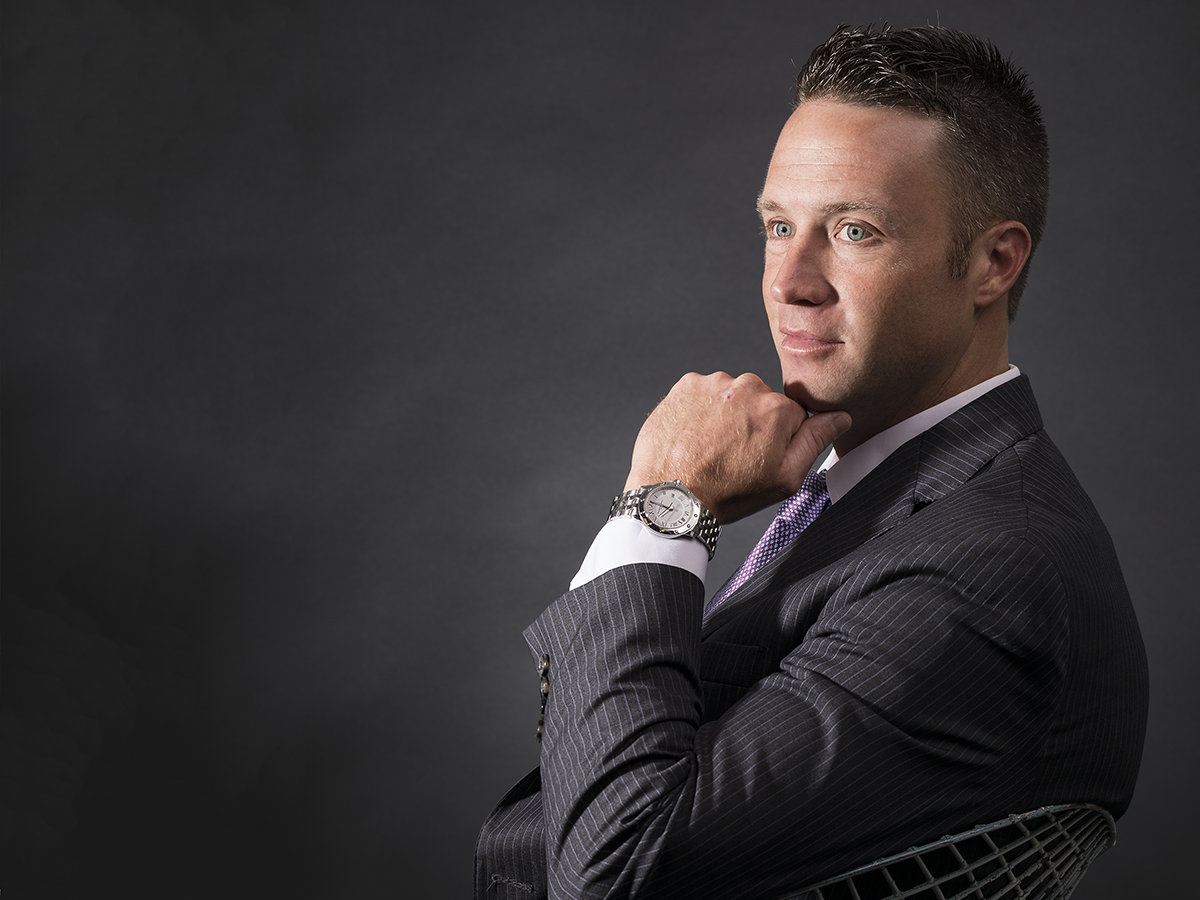
LINCOLN HOUGH
For dedicating his life to public service.
When Lincoln Hough was 26 years old, he ran against Roseann Bentley, one of Springfield’s most beloved public servants, for the 2nd District County Commissioner seat. He lost that race but was undeterred from public service and went on to serve three terms in the Missouri House of Representatives. In 2016, Hough ran again for the seat that had previously eluded him. This time he won, and today he serves as one of Greene County’s three commissioners. In his free time, which is normally early in the morning, he works on his dairy farm, a business he started in seventh grade.
What ah-ha moments have been crucial to your success?
“They always say you learn more when you lose an election than winning. When I lost my commission race the first time, Roseann Bentley came up to me and she said stay involved. That gave me a lot of confidence. That the generation in our community that has been the driver for so many years believes in the next generation, that was huge. I just remember walking away from that totally exhausted. I’d killed myself campaigning. The easy thing to do would have been to be done with politics. But when you have those people that will lend guidance, I think we’re all better for it.”
What’s your favorite part of your job?
“My favorite thing about my current role is being in the community. I love Springfield. There are so many cool things that happen in Springfield. I’m constantly trying to be the conduit to get young professionals to come back to Springfield. I want our community to grow in that way. And when you bring them here and you take them downtown, we’ve got nice restaurants, we’ve got the ball field, and we’ve got theater and art. We have a lot of things that I think people would be surprised about for a community our size. My favorite part of this job is being an advocate for my community.”
How would you like to see 417-land change in the next decade?
“What I would like to see our community do is to foster relationships with the next round of leaders. Let’s not discriminate against the next generation because we’re still figuring out where we fit in the world. We have a lot of ideas. We have a lot of momentum. There’s a lot of just really good, talented people that I think as long as the leaders that have been continuing to foster those relationships to maximize succession planning, our community will continue to grow.”
What’s your proudest accomplishment?
“I feel like my time in Jefferson City was well spent. I felt that personally I was an advocate for our community. It was a sacrifice, and it takes a toll on your family, but I believe that if you want to do something good for your community, you’ve got to apply yourself and go all-in and do it. I was selected a couple of years ago to go to a young leaders conference in Zurich. They look at leaders that they think will end up doing something, and they build relationships now. I still keep in touch with a few of the people that were in Switzerland on that trip.”
What’s the thing that drives you?
"People. My community. There are so many good things going on in our community that that’s what motivates me. Just staying involved. That’s what gets you up early in the morning. It’s what get you going to a meeting in the evening instead of going home and doing something. And kids. Children who, through no fault of their own, are in a circumstance that I would say is not really fair to them. But if I can be an advocate for them, that’s what I’m here for.”
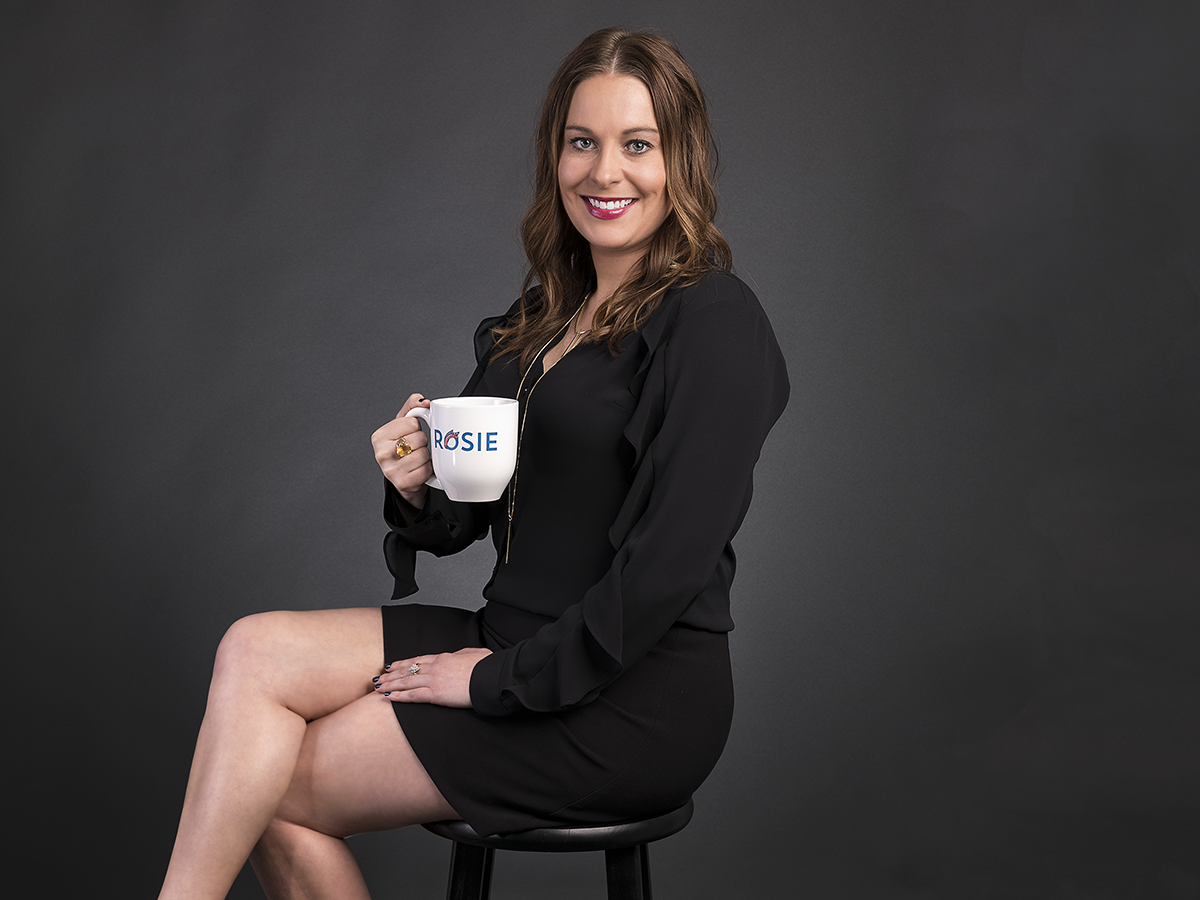
RACHEL ANDERSON
For empowering local startups.
As the entrepreneurial specialist for The eFactory, Rachel Anderson is the go-to business resource for the entrepreneurship center’s clients, including the startups that are lucky enough to land in its competitive accelerator program. Anderson knows firsthand what it takes to launch a successful company as she’s a co-founder of the tech startup Alumni Spaces, which creates software for university alumni chapters. This past November, Anderson also co-founded women’s advocate and networking group Rosie.
What ah-ha moments have been crucial to your success?
“Mine really goes back to when I was in college. The best advice [my mentor Vicky Riback Wilson] gave me is ‘Do something every day that gets you out of your comfort zone.’ You’re going to be able to better relate to people and different experiences. You’re able to make better decisions, have a better place of understanding and think through things differently than if you only lived in your bubble forever. That’s something I still try to put into practice each and every day.”
What’s your favorite part of your job?
“I love helping people follow their dreams. Everything I do gets to be the yes person. This is your idea, it may need some refinement, it may not be ready to go tomorrow, but I get to be that person that helps people figure out how to do it. It’s very liberating that you get to live in dream world all day but to mix it with reality. How can we help to mitigate these risks to have these startups succeed? And then I get to help be that matchmaker—to be able to connect those people who are established out in the community doing well and partner them with startups.”
How would you like to see 417-land change in the next decade?
“For Springfield to continue its growth pattern, we must be intentional about diversity. Springfield has long been a community that is attractive to business and families. To remain competitive with top talent and millennials staying in and moving to Springfield, we have to rival what people expect and want in their city of choice. We have a lot of great things going for us, but we also have a lot of opportunity to diversify and appeal to more people. I’d love to see additional diversity in not only ethnicity, but also restaurants, bars, music, types of businesses, clothing stores, etc. Music, arts and culture are part of what make a community great. I’ve seen a tremendous amount of emphasis in the last few years and am excited to see more.”
What’s the thing that drives you?
“To be a problem-solver always. I’m really solution-oriented, and it’s not just about making money. I want to help make an impact and do my part to make the world better because I’ve had so many awesome people and mentors who have been there to help me all along. I want to do that for other people.”
What’s your go-to business book?
“I think "Four Agreements" is really good. I think it’s a good life book, but if you can apply those skills to business, especially when you have your own business, I think it’s really good. I actually read that book because [of] the former CEO of the company that I worked at—he was a West Point grad, one of the smartest guys that I know. It was required reading for all new employees. At first I was like, ‘Well I read all the time,’ but it’s really one of those [books] that has changed me.”
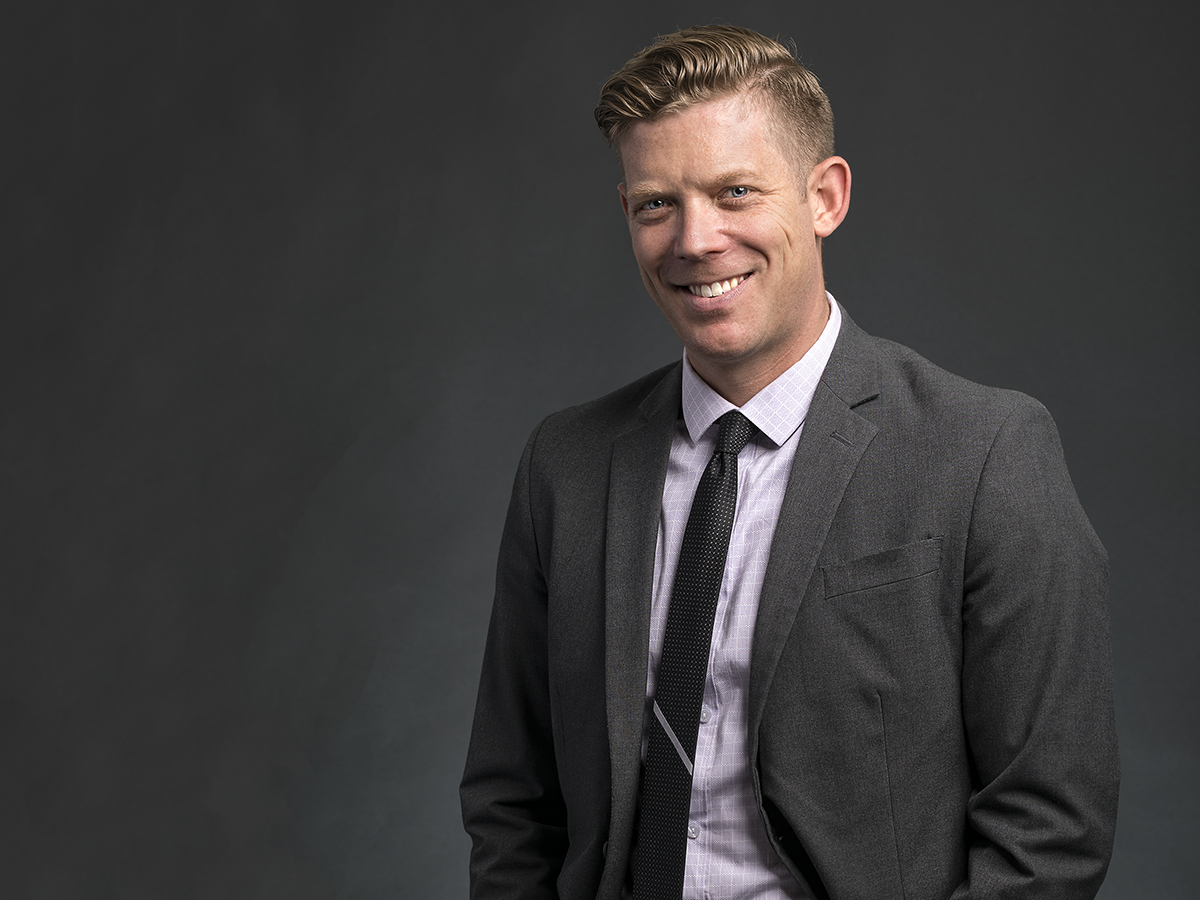
JEFF HOUGHTON
For living his Hollywood dream in Springfield.
Jeff Houghton wears a lot of hats. The list includes creator of The Mystery Hour, TV personality, Instagram husband, writer, producer, father and actual husband. And while his accomplishments continue to pile up—such as his 2016 Emmy win for the mega-popular Instagram Husband video—it’s his unabashed love for Springfield that sets him apart in our eyes. Houghton’s on a mission to make everyone love Springfield as much as he does, one hilarious skit at a time.
What ah-ha moments have been crucial to your success?
“This sounds so simple, but all these ideas I have, I can just do them. I used to have a lot of ideas and think someone should do that, and now I’m like, ‘Oh, I can do it.’ And going to Los Angeles was a huge deal to me. I didn’t know how much confidence it was going to take. So the realization for me was decide to do something and then figure it out. I didn’t know how scary and hard this was going to be, otherwise I wouldn’t have done it.”
What’s the thing that drives you?
“Fear of failure. That’s half-joking. I think probably deep down it’s real. It’s just not something you say in a magazine. The other side of that is that I always see the potential in things and want to work to reach that potential. So the flip side of that is I can get too much like, ‘Oh but we aren’t there yet. Let’s work on these things to get there.’ That’s the side that annoys me, but the good side of it is I do see the potential of everything, and so I think that drives me.”
How would you like to see 417-land change in the next decade?
“One, I would like to see more diversity and more of a celebration of diversity. Where I’m from, Iowa City, it’s probably a similar city demographically but it really celebrates diversity and values it. I’d like to see Springfield value that diversity more. Two, more pride in the area. Springfield has a great creative community—better than you would expect for a city this size I think, and I’d love to see that grow. I’d love to see Springfield become that creative hub. There’s also a big poverty problem. Domestic violence is a big issue.”
What’s your favorite thing about your job?
“The best thing is doing all of these things creates a deadline for all of my creative ideas, which is what every creative person needs. It’s funny because creative people have creative ideas for things, but it’s really hard to make yourself do it unless you have a deadline. So we schedule the shows, and then we have a deadline. It’s given me the opportunity to pursue all off these creative things and actually see the finished product.”
What’s the best advice you’ve ever received?
“My friend Dana Powell said this to me. She’s in LA; she’s from here but a working actress out there. She said somebody told her this: success in Hollywood—but maybe this pertains to everyone—comes down to two of three things: talent, luck and perseverance. You can’t do it with just one, but you don’t need all three. So if you have talent and luck, and you get discovered, that gets you there. If you have talent and perseverance, that get you there. If you have luck and perseverance, that gets you there.
“And then Yakov Smirnoff was one of our early guests on the show back in, like, 2007. I was asking him, ‘Do you have any advice for the show?’ and he said, ‘Just keep doing what you’re doing and get better, and then you’ll be ready when the opportunity comes.’ So the fact that [The Mystery Hour is] not nationally syndicated right now doesn’t bother me so much because I know how much better we’re getting all the time. Then if the opportunity presents itself, we’ll be ready.”
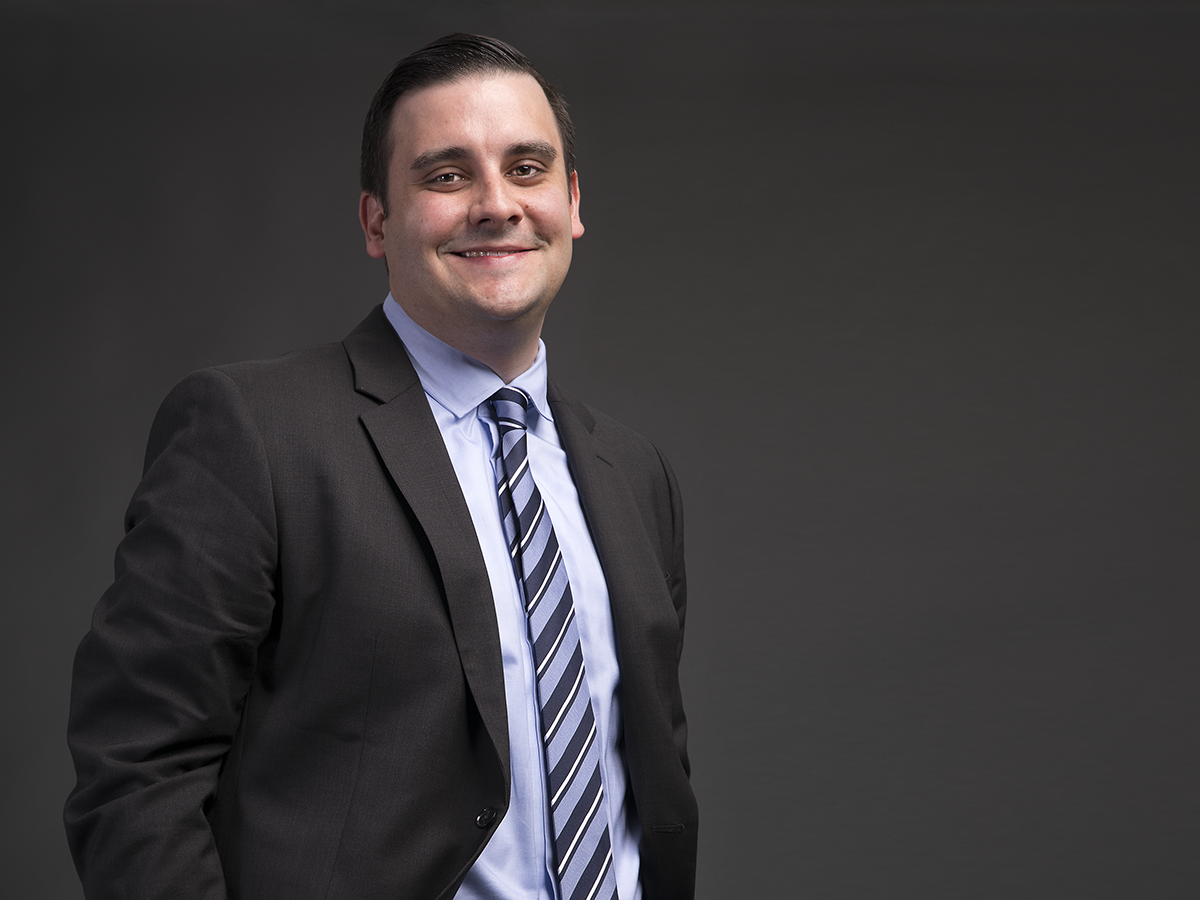
BRITTON JOBE
For fighting the brain drain.
Knowing he wanted to pursue a career in law, Britton Jobe didn’t consider staying in Springfield after college because he thought there wasn’t a strong law sector. It wasn’t until he was graduating law school in Nebraska that he realized he was wrong. Now that he’s back in Springfield and an attorney at Neale & Newman LLP, he’s working to connect local college students with the business community through a partnership between Springfield universities and The Network, the Springfield Chamber of Commerce’s young professionals group.
What ah-ha moments have been crucial to your success?
“I’ve received this advice from multiple people at different levels of my education and career; it’s been to find a mentor. As you go to each different stage of your life, there are so many questions. To be able to find someone that you can trust—somebody who is where you want to be and have that respect for them—that has really paid off. Whenever you can have a good relationship with a mentor, I think that really helps with your confidence. It helps with you professionally. It helps you personally. And I think that I’ve really benefited from that.”
What’s your favorite part of your job?
“What I like about my job and why I’m so happy here is because it’s allowed me to do what I wanted to do when I went to law school, which was to be in court with some frequency. That’s getting rarer these days, and Neale & Newman wasn’t afraid in the beginning to give me those opportunities. I like the—I hate to use the word—but the rush, the advocacy. I’m an advocate. I like that being in court allows you to do that. I went to Missouri State on a debate scholarship, so I’m just kind of wired that way. Law school was the same way and being able to continue to do that in my professional life has really been special.”
How would you like to see 417-land change in the next decade?
“For years there were so many colleges and college students here. Springfield was kind of a training ground for college students, and then they went to the cities. And you’re always going to have some of that. That’s not necessarily going to change, but I think you’re going to start to see Springfield evolve into a destination as opposed to a starting place. That’s going to happen as more young professionals stay here. That’s going to happen as we get more cultural amenities here, as we become more diverse. I think that those are things that are changing right now. There’s some resistance to that. Some of that has been very public. I think that for the most part we’re moving in the right direction.”
What’s your proudest accomplishment?
“My proudest accomplishment was having the opportunity to argue in front of the Missouri Supreme Court. It was another attorney in my office and myself. It was really interesting to be able to help handle a case from the very beginning all the way through being successful and getting what we wanted. That was the first time that I really had tracked a case from the beginning all the way until the very end, so that was such a neat opportunity to do so early in my career.”
What do you think is the biggest challenge facing our region?
“We don’t seem to collectively know what we are as a community. The joke when I was in college was we’re the biggest small town you’ve ever been in, and I think there are people here who think that. I don’t think that that’s the case. I don’t think Springfield is a small town. I think that Springfield has a lot to offer. I think that a lot of the challenges that you see, whether it’s community leaders or issues that people disagree about, a lot of them have to do with the fact that we’re not sure what we are. And a lot of that is growing pains because we are changing, and so I think that’s creating some challenges. I think that above all we have to decide—and not everyone is going to agree—but I think that we have to collectively all be rowing in the same direction, and sometimes I think that that’s a challenge when people don’t necessarily have the same vision. So that’s something that I’m really trying to get to the bottom of in my civic life is to really sell Springfield, really be an advocate for Springfield. I think Springfield sells itself short both when it comes to our role in the state and our role in the region. I think that there is so much potential here, and I’m very excited about it.”
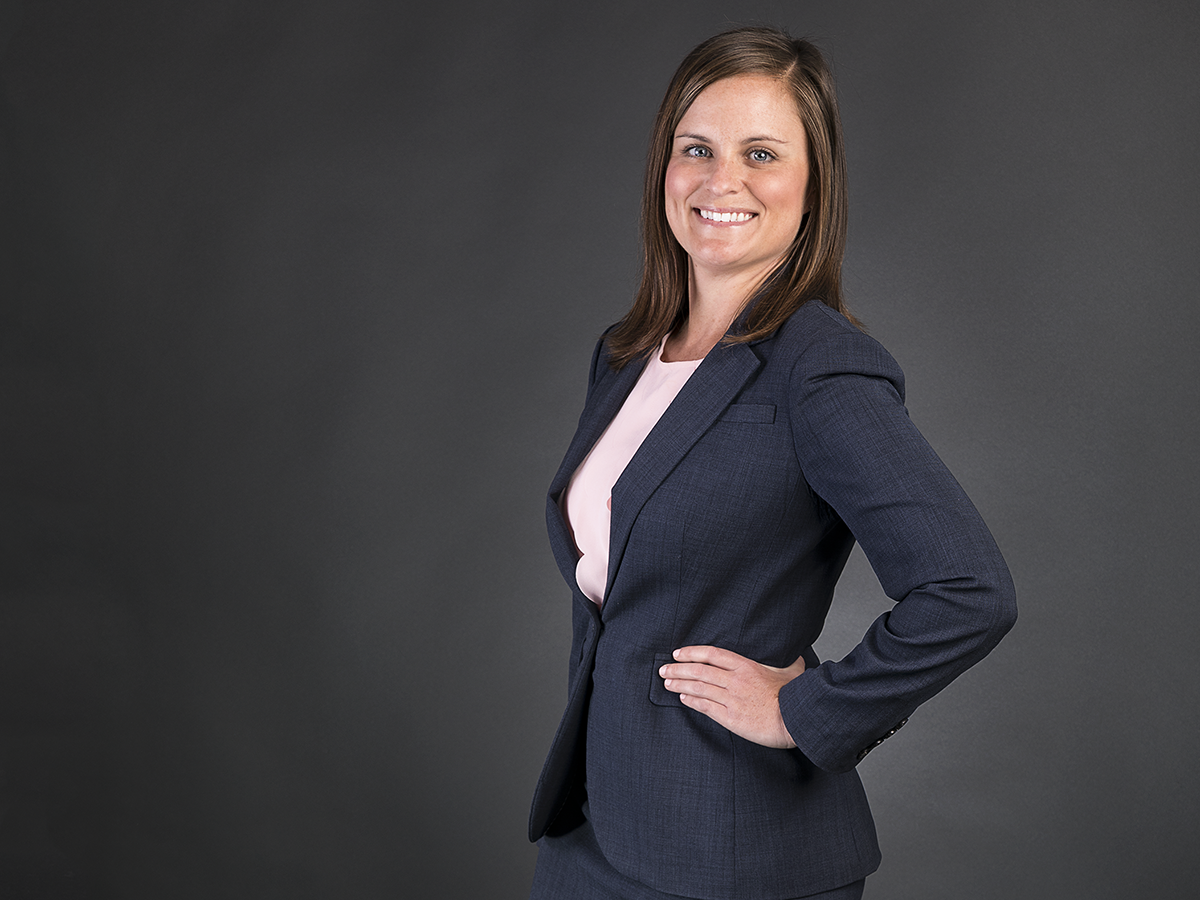
AMANDA CALLAWAY
For making Springfield a better place to live.
As a Springfield native, Amanda Callaway loves seeing the positive impact her job as an assistant city attorney has on her hometown. Callaway is responsible for drafting the city ordinances that made it possible for transportation network companies like Uber and Lyft to operate. She also simplified ordinances that govern outdoor events on city property, making it easier to throw events like Artsfest and Taste of Springfield.
What ah-ha moments have been crucial to your success?
“We get asked a lot of questions on the spot, and sometimes it’s in a public meeting. My former boss Dan Wichmer told me, ‘Never give an answer that you’re not sure of. It’s always okay to say “I wrote down your question. I’ll get back to you.”’ I love the idea that you don’t always have to have the answers. You’re not supposed to be an encyclopedia of all the legal answers under the sun. I will go back and research it, and I’ll provide them with a timely answer. That builds confidence in you as an attorney.”
What’s the thing that drives you?
“Anything is possible. It is even written in a sign that I have hanging on my office door. I believe that if you work hard, find ways to overcome setbacks and have a positive attitude you can achieve much more than you realize. I applied this mantra to law school, the bar exam, half-marathons, even when I was recovering from a bad ACL tear. In all of those situations, I have briefly let doubt creep into my thoughts—wondering if I could do those things—but I reminded myself that anything is possible and if I keep trying, I can succeed.”
How would you like to see 417-land change in the next decade?
“I hope that we continue to be a competitive market for young professionals. I hope that Springfield is a place where people choose to vacation due to our access to some of the most beautiful hiking trails, rivers and lakes. I think we just need to continue with what we have been doing over the last few years—being open to change and new ideas. We are doing something right because this is a wonderful place to live.”
What’s your favorite part of your job?
“I really like the nature of working with the police. I think that they obviously serve a very important role in our community. I like just making the city—it sounds cliche—but making it a better in terms of helping the police do their jobs. Also drafting laws like Uber that help people get around. It helps people not drink and drive, which is always a positive thing. It helps elderly people get around and people who don’t have cars. Somebody told me they were excited about Uber because they don’t have a car, and so to get to work they take Uber."
What’s your go-to business book?
“It’s actually a well known test called the Herrmann Brain Dominance Institute. It allows you to understand how you give and receive information through communication. I think that communication is key. Whether you’re negotiating a contract or you’re working with your own department, it’s really important to understand what’s the ultimate goal and how we can get there. The test allows you to adjust your communication to better suit the individual so that they understand the message. It really helped our office.”
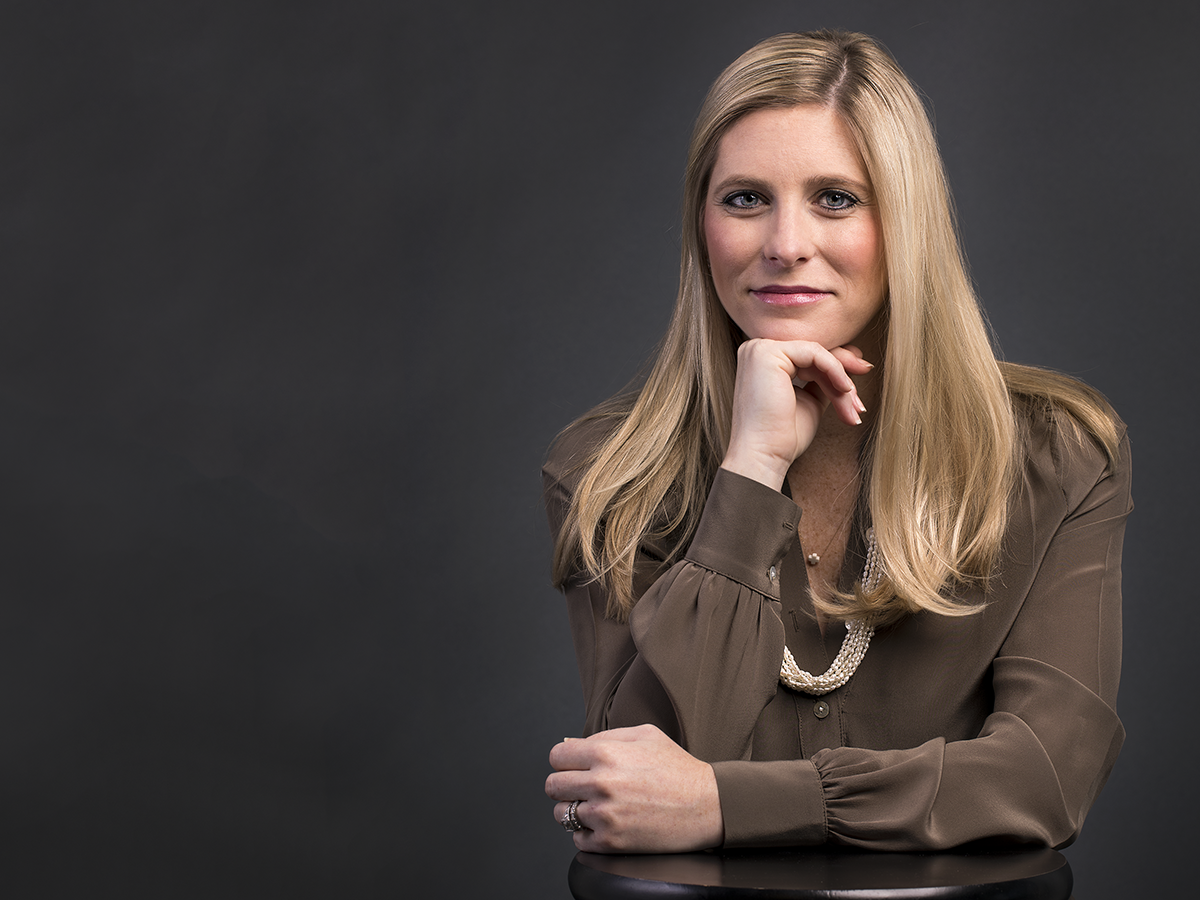
CATHERINE BASS BLACK
For shaking things up.
When Catherine Bass Black found herself dissatisfied in the nonprofit sector, she made a plan and got busy. The plan included a career move to the world of executive recruiting and enrolling in the MBA program at Goizueta Business School at Emory University. This eventually led to her current role as the head of talent acquisition and community affairs at Bass Pro Shops, where the South Carolina native draws on her experience from the corporate and nonprofit worlds.
What ah-ha moments have been crucial to your success?
“It’s critical to understand not only the culture of the company you’re going to work for in your career but who your boss is going to be. So interviewing your manager or your boss is going to be critical. And that chemistry that you have between you and him or her is incredibly important to your happiness and success in that path. Another ah-ha moment is you need to own your success. Know what’s going to do it for you, and when things don’t go your way, you need to adjust and not expect the environment to shift or put blame on others. Just own your own path.”
What’s your favorite part of your job?
“Working with people. I enjoy building relationships and getting to know all the incredible team members that we have here at Bass Pro Shops, but also we have such an amazing story, it’s rewarding to get to share that experience with individuals, either prospective associates and candidates [or] community partners and community members. From a philanthropic standpoint, it’s rewarding both internally and externally to be in the position I’m in.”
How would you like to see 417-land change in the next decade?
“Four-one-seven–land has been incredibly welcoming and very open to discussing and hearing new ideas. We had a great experience coming to 417-land on the surface. I think once you peel back one layer, you’ll see that a lot of leadership is very risk-averse and has yet to make goals and commitments or changes to move this region forward. We just haven’t had the appetite to take the risk, and the rewards can be so much greater. I also think we’re very insular in thought leadership. There is a huge opportunity to tap into individuals that are from outside of Springfield on ideas of how to better improve Springfield. In a lot of ways, I’m incredibly appreciative and grateful to be in a position to offer my opinion as somebody so new to the community.”
What do you think is the biggest challenge facing our region?
“There’s a huge lack of women [in] leadership in Springfield. I think that takes the male-dominated leadership being diligent and intentional about training and supporting women throughout all stages of their career so that when they reach a point where there is an opportunity to serve in senior leadership roles, they’re ready and prepared. I don’t promote having token females at the table, but because there is not an intentional focus around training women in the workforce, there’s a lack of leadership at the top.
“The challenge is, I don’t think it needs to come from women. I honestly think it needs to come from men. Getting a bunch of women in a room to talk about how to get women at the top does nothing to change the situation, and I’ve been pretty blunt about that. If the issue is male sponsorship, there must be males in the room to sponsor women. There is significant research and data around why it is important to have diversity of thought and gender, but they have to be intentional about it so there are women there at the top in 10 years to fill those roles. I don’t think it’s something that happens overnight.”
How have your mentors affected your career?
“I’ve had people that have been very, very honest, who have kind of held up a mirror and said ‘Is this what you want to be doing? Is this where you want to go? Are you making the right decision here?’ The mentors I’ve had, they’ve been the real deal where they will push you and they will support you but also hold up a mirror and say it’s time to move.”
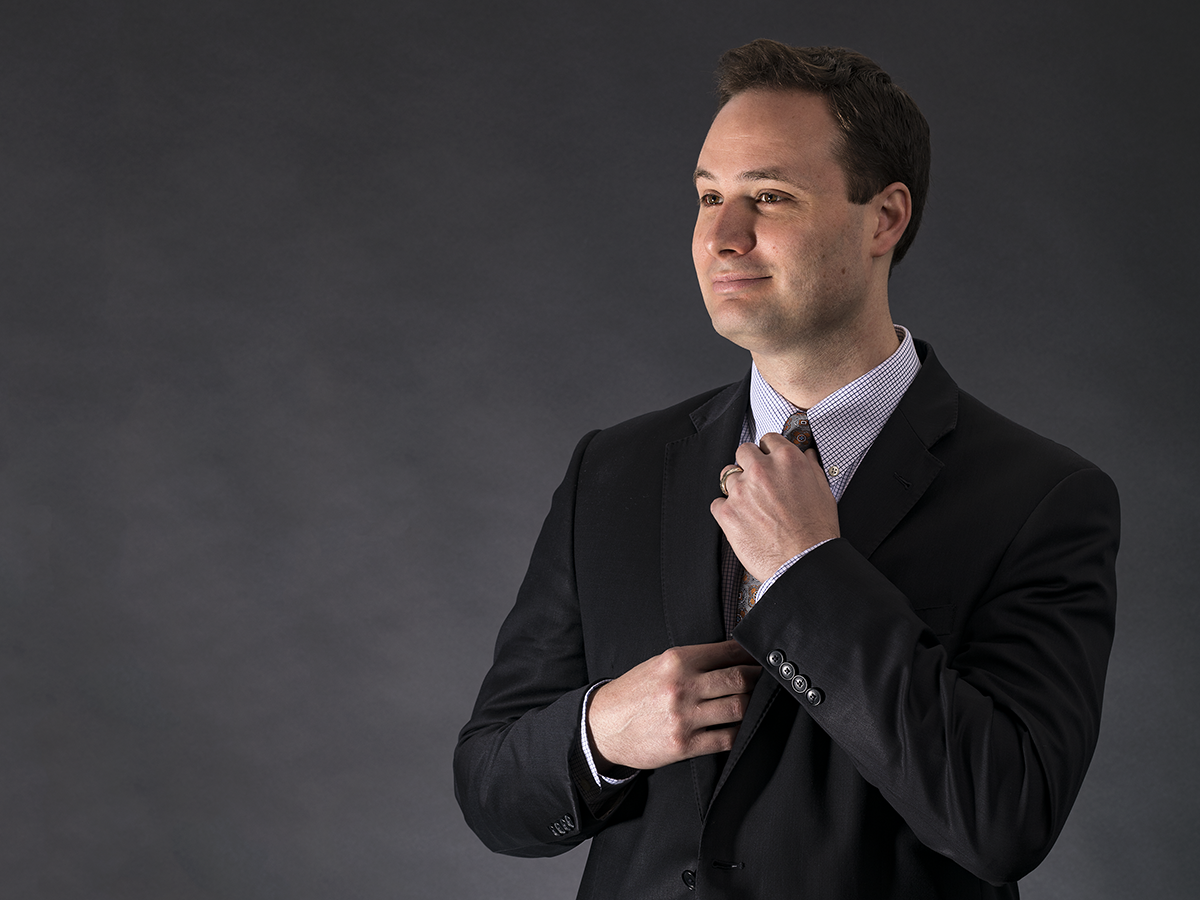
MAX BUETOW
For increasing access to health care across 417-land.
Max Buetow first moved to Springfield to play junior hockey. While here he fell in love with the city and his future wife, but it would take a few more years and a couple of moves to different cities before he’d settle down and take a job as vice president of regional services and neurosciences at CoxHealth. In his position, he’s been instrumental in the implementation of DirectConnect, the region’s first direct-to-consumer telemedicine program.
What ah-ha moments have been crucial to your success?
“I was working as an overnight supervisor in a bakery at Sara Lee, and we had a conveyor belt that kept going down [and] all the product that was in the oven would burn up. So every night for like two straight weeks, I would go over with our foreman, and we would take these hot trays of hot dog buns off the line and put them on racks. Once the conveyor belt got back up and working, we’d put them back on the conveyor belt, and I was really proud of the work I was doing. My plant manager strolls in one night. He sits across from me and says, ‘What are you doing?’ And I said, ‘What do you mean what am I doing?’ He said, ‘All you’re doing is firefighting. Your job is to make sure the conveyor belt never goes down again.’ And that was probably the biggest change—to make that transition from firefighting to proactive problem solving. I think I’ve been on a different path since then.”
What’s the thing that drives you?
“I think I’ve been placed in a position where a lot of people put a lot of trust in me, and I want to be able to rise to that occasion. I live by a saying: To whom much is given, much is expected. I feel like I’ve always been put in a position that’s probably a step ahead of where I should be in life. I take that very seriously when someone puts that level of confidence in me.”
How would you like to see 417-land change in the next decade?
“We’re in a state that politically a lot of things are driven by two larger cities. I think we’re starting to come into our own as a region and are being seen as on par and not necessarily a tertiary thought.”
What do you know now that you wish you knew when you were first starting out?
“From a professional standpoint, no matter what career you’re in or what position you’re in, we’re all in the relationship business. And probably more than anything what has helped me to be successful in my career is the ability to develop relationships with people. The most fulfilling thing about anything you do is the relationship you have and the people you work with. And that’s both personally and professionally. It allows you to expand your own knowledge base and capability so much further, so I’m not a content expert on anything. I don’t have any specific skills of any kind I would say, but one thing I know I can do is develop relationships, and I can call most anybody in my organization and say, ‘I need you to drop everything you’re doing in the next hour and help me,’ and people will do it.”
Do you have any advice for other managers?
“You’ve got to remove low performers from a situation. My personal vantage point of that is, oftentimes people get to the crossroads, the intersection of their career, when they’re deciding one of two things: Am I going to be a great employee, or do I need to find a new job elsewhere? Really good managers don’t let them just stand at that crossroad and clog up the intersection. They force people to make a decision, and then once people make that decision, they help on whatever path they want to be on.”

